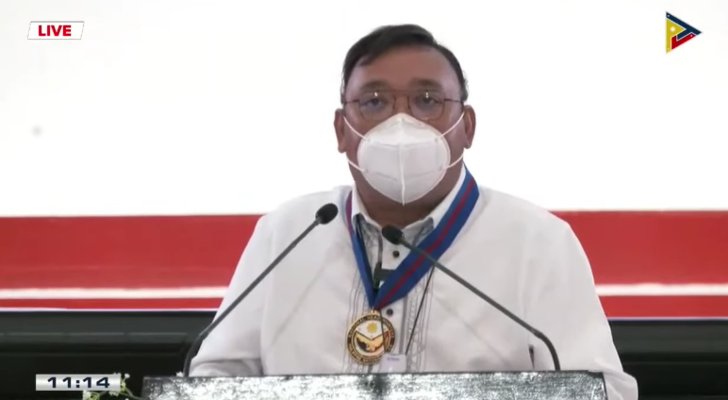Palace spokesperson Harry Roque in a March 6 press briefing credited the Philippine government for “recently” enacting a law passed a decade ago, an expanded version of which has not yet been signed by the president.
STATEMENT
Facing journalists in Malacañang, Roque touted the country’s investment climate and promised investors the current administration will continue to implement policies to improve the ease of doing business.
He said:
“In fact, uhm, in pursuance to this, we have recently enacted the Anti-Red Tape Law, giving fixed periods for local governments to act, uhm, on pending applications, uhm, lodged with them.”
Source: Radio Television Malacañang, Press Briefing of Presidential Spokesperson Secretary Harry Roque, Malacañang Palace, March 6, 2018, watch from 1:33-1:52
FACT
Republic Act No. 9485, the country’s anti-red tape law, was signed by former president Gloria Macapagal Arroyo in 2007.
A bill seeking to amend the law is yet to be transmitted to the Office of the President, albeit already in its final stages in Congress.
As of March 9, the latest entry in the legislative history of Senate Bill No. 1311, which seeks to expand the old anti-red tape law to among others streamline processes in starting and operating businesses, reads:
“3/5/2018 Conference Committee Report Approved by the House of Representatives on February 27, 2018”
Source: Senate of the Philippines, Senate Bill No. 1311
The office of sponsor Sen. Juan Miguel Zubiri told VERA Files Fact Check the bill:
“has been ratified in the Senate and the House of Representatives. We are preparing the enrolled copy to be transmitted to the Office of the President for his signature.”
Sources:
Civil Service Commission, Anti-Red Tape Act of 2007
Radio Television Malacañang, Press Briefing of Presidential Spokesperson Secretary Harry Roque, Malacañang Palace, March 6, 2018
Senate of the Philippines, Senate Bill No. 1311, as of March 9, 2017, click ‘Leg. History’
(Guided by the code of principles of the International Fact-Checking Network at Poynter, VERA Files tracks the false claims, flip-flops, misleading statements of public officials and figures, and debunks them with factual evidence. Find out more about this initiative.)






